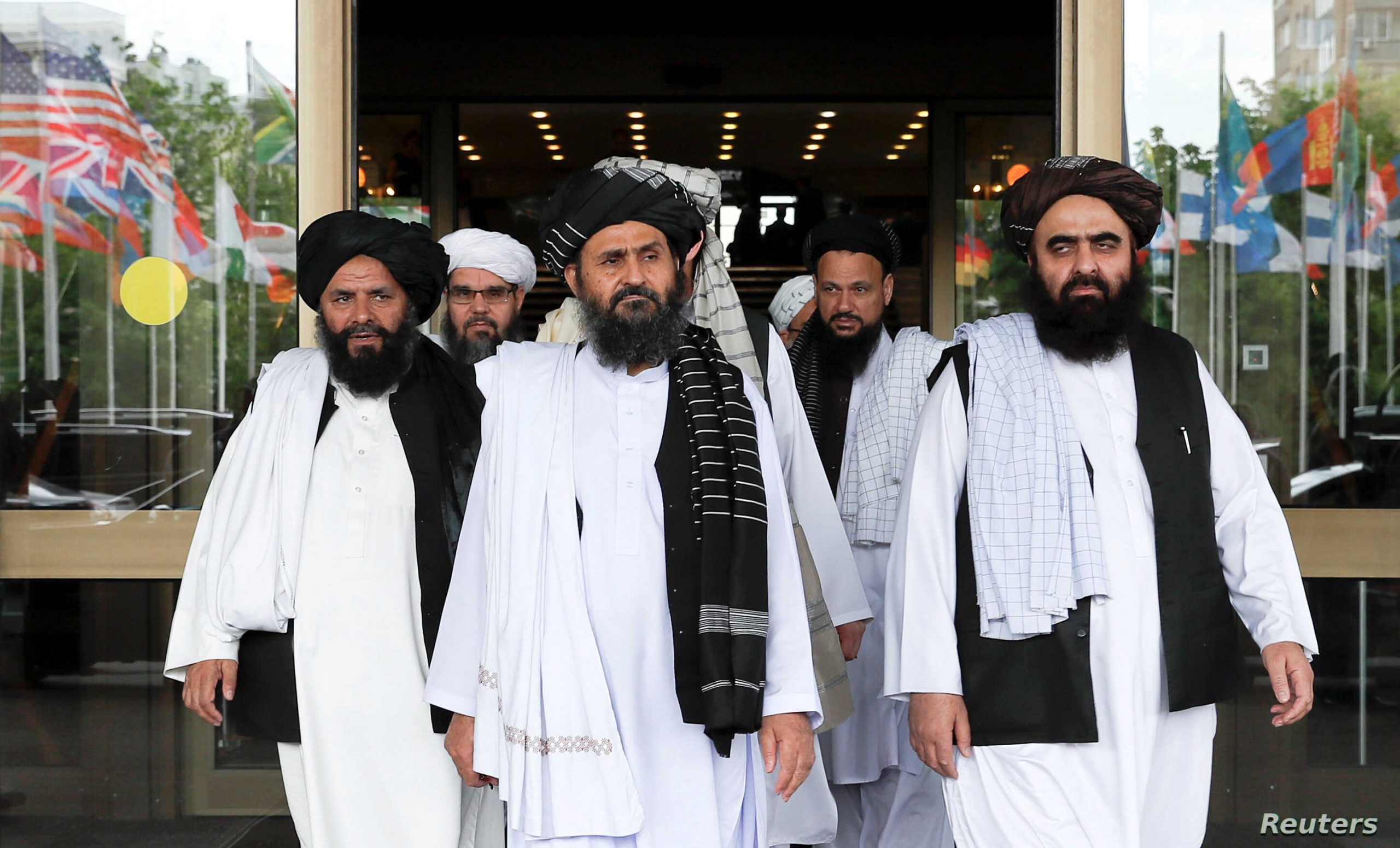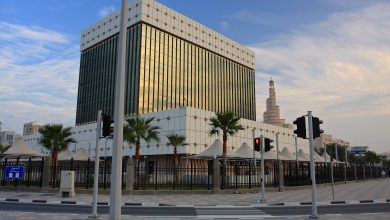Qatar Continues to Encourage Afghan Parties to Engage in Dialogue
قطر ستواصل دفع وتشجيع الأطراف الأفغانية على الحوار
QNA
Antalya: HE Deputy Prime Minister and Minister of Foreign Affairs Sheikh Mohammed bin Abdulrahman Al-Thani said that the State of Qatar will continue to push and encourage the Afghan parties to engage in dialogue, but would like to see something achieved on the ground as soon as possible.
This came in a discussion session entitled “Innovative Mediation”, which witnessed the participation of HE the Foreign Minister and HE Kuwait’s Foreign Minister and State Minister for Cabinet Affairs Sheikh Dr. Ahmed Nasser Al-Mohammed Al-Sabah as part of the 1st Antalya Diplomacy Forum, which kicked off Friday in the Republic of Turkey.
In his speech, HE the Deputy Prime Minister and Minister of Foreign Affairs considered the Antalya Diplomacy Forum a distinguished platform for communication between all concerned parties to develop diplomatic work, adding that the regional impact of many crises can develop and be reflected internationally, which forces countries that believe in diplomacy to deal with those crises and make more efforts to avoid their aggravation.
His Excellency continued, “The nature of crises is changing. We are now talking about armed conflicts that occur around the borders. We are also witnessing more crises related to the cyberwar in which mediation is difficult, in addition to conflicts related to climate change. Therefore, I think that if we go back to the basics mediation, we find, is mainly related to human communication.” He considered that the first condition for mediation is trust and then encouraging the concerned parties to dialogue, stressing the importance of the mediator acting without prejudice to one of the parties, with a focus on proposing solutions that in turn contribute to building the necessary confidence in the mediation process.
HE Sheikh Mohammed bin Abdulrahman Al-Thani explained that there is another important aspect, which is proactiveness and quick action, which play a pivotal role in preventing the occurrence or exacerbation of crises. He added, “We are now looking at how we can link mediation with current developments, and if we take, for example, the mediation of the State of Qatar in Darfur, we find that it has committed to developing the region and developing several villages there, in addition to developing the health and housing sectors. It is also important That we continue to encourage and enable pluralism and work within a pluralistic framework, whether at the regional or international level, which can be a helpful element in the success of mediations.”
Regarding the developments of the Afghan file, HE the Foreign Minister said that Qatar will continue to push and encourage the Afghan parties to dialogue, but it would like to see something achieved on the ground as soon as possible, stressing that Qatar, along with the countries it works with, will make efforts to hold the Istanbul Conference on Afghanistan, which will be organized by Turkey and the United Nations, but it hopes to see progress in this file. He underlined that the cessation of hostilities and faith in the political and diplomatic process would help the success of the dialogue, which also needs to ensure the participation of all Afghan groups, including women and youth.
HE the Deputy Prime Minister and Minister of Foreign Affairs indicated that the Afghan crisis is very complex, adding that reaching an agreement between the United States and the Taliban movement was the first step in efforts to bring peace to Afghanistan.
His Excellency said that although the dialogue that the State of Qatar has been engaged in since February 2020 between the Afghans is witnessing some steps forward and others backward, it has not achieved tangible progress yet, stressing that the timing has become difficult, especially after the announcement of the withdrawal of the US and foreign forces by September with the absence of an Afghan-Afghan consensus, which raises many questions about the future of Afghanistan.
HE Sheikh Mohammed bin Abdulrahman Al-Thani pointed out that the goal is to reach a ceasefire between the government and the Taliban, in particular, and also consensus among all Afghan parties on the future of Afghanistan and power-sharing there, but unfortunately, not much progress has been achieved in this direction due to several factors, most notably the uncertainty whether the participating parties understand the emergency nature of these negotiations, in addition to the COVID-19 pandemic, which slowed the progress of the negotiation process.
In response to a question about the risks associated with mediation, HE the Deputy Prime Minister and Minister of Foreign Affairs considered that the negative aspect of the negotiation process is that the mediator is accused by all parties of being biased to one party at the expense of another, and this is normal, but what encourages the mediator, to seek and continue his effort, is looking for the greater interest, which is to avoid and reduce conflict and save lives, explaining that paying the price of your accusation to save one life is worth it.
On the possibility of some mediation giving some kind of legitimacy to some terrorist organizations, HE the Foreign Minister replied that when talking about conflicting parting, this doesn’t mean adopting the position of any of them and recognizing the non-governmental parties doesn’t mean believing in their ideology or supporting them, as the mediator always needs to talk to all parties to end or reduce conflict, adding that if the terrorist organizations do not believe in peaceful solutions, they will not waste their time talking to any mediator to solve the crisis, as the matter is very delicate and needed to be done with great caution.
In the discussion session, HE Deputy Prime Minister and Minister of Foreign Affairs Sheikh Mohammed bin Abdulrahman Al-Thani stated if an extremist organization is being dealt with on the basis that it is a party to the conflict, the advice is to stop this mediation until that terrorist organization abandons its position, otherwise, ending up recognizing its legitimacy, so it is important to develop a new definition of what could be called a terrorist organization.
قنا
أنطاليا: قال سعادة الشيخ محمد بن عبدالرحمن آل ثاني، نائب رئيس مجلس الوزراء وزير الخارجية، إن دولة قطر ستواصل دفع وتشجيع الأطراف الأفغانية على الحوار، لكنها تود أن ترى شيئا ما يتحقق على الأرض في أقرب وقت ممكن.
جاء ذلك لدى مشاركة سعادته في جلسة نقاشية بعنوان “الوساطة المبتكرة” مع سعادة الشيخ الدكتور أحمد ناصر المحمد الصباح، وزير الخارجية ووزير الدولة لشؤون مجلس الوزراء الكويتي، في النسخة الأولى لمنتدى أنطاليا الدبلوماسي الذي انطلق يوم الأمس في الجمهورية التركية.
وفي حديثه، اعتبر سعادة نائب رئيس مجلس الوزراء وزير الخارجية، منتدى أنطاليا منصة متميزة للتواصل بين جميع الأطراف المعنية من أجل تطوير العمل الدبلوماسي، مضيفا أن التأثير الإقليمي للعديد من الأزمات يمكن أن يتطور وينعكس دوليا، وهو ما يجبر الدول التي تؤمن بالدبلوماسية على التعامل مع تلك الأزمات، وبذل المزيد من الجهود لتفادي تفاقمها.
وتابع سعادته “إن طبيعة الأزمات تتغير، فنحن الآن نتحدث عن النزاعات المسلحة التي تحدث حول الحدود، كما أننا نشهد المزيد من الأزمات المتعلقة بالحرب السيبرانية التي من الصعب أن يكون فيها وساطات، بالإضافة إلى النزاعات المرتبطة بتغير المناخ، ولذلك أعتقد أننا لو عدنا إلى أساسيات الوساطة نجد أنها تتعلق أساسا بالتواصل الإنساني”، معتبرا أن الشرط الأول للوساطة هي الثقة ثم تشجيع الطرفين المعنيين على الحوار، ومشددا على أهمية أن يتصرف الوسيط دون تحيز لأحد الطرفين، مع التركيز على اقتراح الحلول التي تساهم بدورها في بناء الثقة اللازمة في عملية الوساطة.
وأوضح سعادة الشيخ محمد بن عبدالرحمن آل ثاني أن “هناك جانبا مهما آخر وهو الاستباقية والتصرف السريع، واللذان يلعبان دورا محوريا في منع حدوث أو تفاقم الأزمات”، مردفا “نحن ننظر الآن في الطريقة التي يمكن بها أن نربط بين الوساطة وبين التطورات الحالية، ولو أخذنا على سبيل المثال وساطة دولة قطر في دارفور، نجد أنها التزمت بتنمية الإقليم وتطوير عدد من القرى هناك، إلى جانب تنمية قطاعي الصحة والسكن.. ومن المهم أيضا أن نستمر في تشجيع وتمكين التعددية والعمل في إطار تعددي سواء على المستوى الإقليمي أو الدولي، وهو ما يمكن أن يكون عنصرا مساعدا في إنجاح الوساطات”.
وبشأن تطورات الملف الأفغاني، قال سعادته “إن قطر ستواصل دفع وتشجيع الأطراف الأفغانية على الحوار، لكنها تود أن ترى شيئا ما يتحقق على الأرض في أقرب وقت ممكن”، مؤكدا أن قطر ستبذل، إلى جانب البلدان التي تعمل معها، الجهود لعقد مؤتمر إسطنبول حول أفغانستان الذي سيتم تنظيمه بين تركيا والأمم المتحدة، لكنها تأمل أن ترى تقدما في هذا الملف، ومشددا سعادته على أن وقف الأعمال العدائية والإيمان بالعملية السياسية والدبلوماسية من شأنه أن يساعد على نجاح الحوار، وهو ما يحتاج أيضا إلى ضمان مشاركة جميع الفئات الأفغانية، بما في ذلك النساء والشباب.
كما بين سعادة نائب رئيس مجلس الوزراء وزير الخارجية أن الأزمة الأفغانية متشعبة ومعقدة جدا، وأن التوصل إلى اتفاق بين الولايات المتحدة وحركة /طالبان/ كان الخطوة الأولى في جهود إحلال السلام في أفغانستان”.
وأضاف سعادته “رغم أن الحوار الذي تخوضه دولة قطر منذ فبراير 2020 بين الأفغانيين يشهد بعض الخطوات إلى الأمام وأخرى إلى الخلف، إلا أنه لم يحقق تقدما ملموسا بعد”، مؤكدا أن التوقيت أصبح صعبا خاصة بعد إعلان سحب القوات الأمريكية والأجنبية بحلول شهر سبتمبر المقبل في ظل غياب توافق أفغاني-أفغاني، وهو ما يطرح تساؤلات عديدة حول مستقبل أفغانستان.
ومضى سعادة الشيخ محمد بن عبدالرحمن آل ثاني قائلا “إن هدفنا هو التوصل لوقف لإطلاق النار بين الحكومة و/طالبان/، بشكل خاص، وأيضا التوافق بين جميع الأطراف الأفغانية حول مستقبل أفغانستان وعلى تقاسم السلطة هناك، ولكن من سوء الحظ أننا لم نر تقدما كبيرا في هذا الاتجاه نظرا لعدة عوامل أبرزها عدم التأكد مما إذا كانت الأطراف المشاركة تفهم الطابع الطارئ في هذه المفاوضات، إلى جانب جائحة كورونا التي أبطأت سير وتقدم عملية التفاوض”.
وإجابة على سؤال حول المخاطر المرتبطة بالوساطة، اعتبر سعادة نائب رئيس مجلس الوزراء وزير الخارجية “أن الجانب السلبي في عملية التفاوض هو أن يتم اتهام الوسيط من قبل جميع الأطراف بأنه متحيز لطرف على حساب آخر، وهذا الأمر طبيعي، لكن ما يشجع الوسيط على السعي والاستمرار هو أنه يبحث عن المصلحة الأكبر، وهي تفادي النزاع والحد منه وإنقاذ الأرواح، وأن دفع ثمن اتهامك من أجل انقاذ حياة واحدة هو أمر يستحق العناء”.
وعن إمكانية أن تضفي بعض الوساطات نوعا من الشرعية على بعض المنظمات الإرهابية، أجاب سعادته قائلا “عندما نتحدث عن أطراف متنازعة، فذلك لا يعني أننا نتبنى موقف أي منها، والاعتراف بالأطراف غير الحكومية كما لا يعني أننا نؤمن بفكرها أو أننا ندعمها، فالوسيط دائما في حاجة للتحدث لجميع الأطراف، وذلك لإنهاء أو الحد من أي نزاع، وهنا ينبغي أن نميز أنه مادامت المنظمات الإرهابية لا تؤمن بالحلول السلمية، فإنها لن تضيع وقتها بالحديث إلى أي وسيط من أجل حل الأزمة، فالأمر دقيق جدا ونحتاج أن نقوم به بحذر شديد”.
وذكر سعادة الشيخ محمد بن عبدالرحمن آل ثاني، نائب رئيس مجلس الوزراء وزير الخارجية، في الجلسة النقاشية، أنه “إذا كان التعامل يتم مع منظمة متطرفة على أساس أنها طرف في النزاع، فنصيحتنا هي وقف هذه الوساطة إلى حين أن تتخلى تلك المنظمة الإرهابية عن موقفها، وإلا فإن الأمر سينتهي بنا إلى الاعتراف بمشروعيتها، ولذلك أعتقد أنه من المهم وضع تعريف جديد لما يمكن أن يسمى منظمة إرهابية”.




